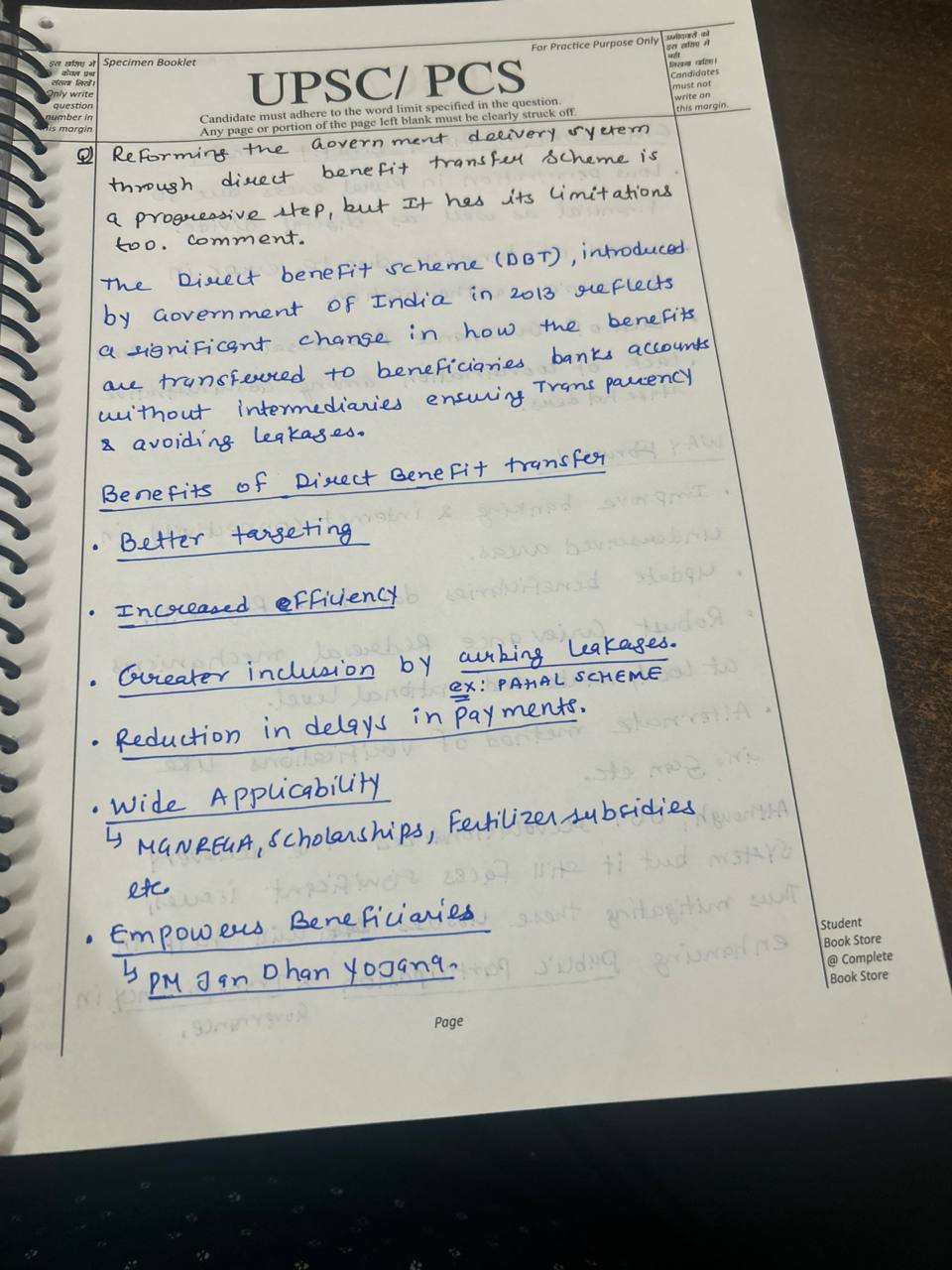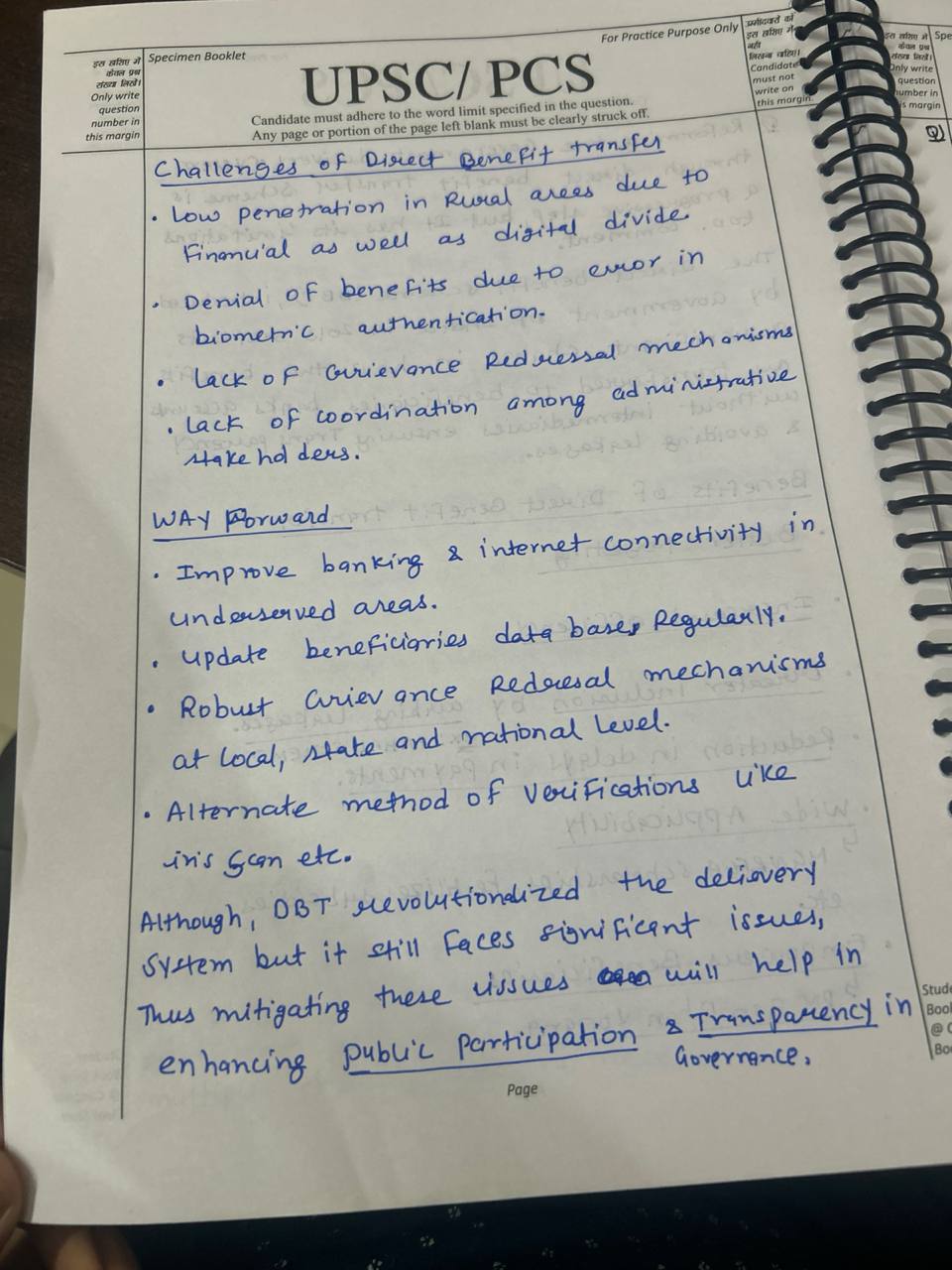How does corruption impact public trust in government institutions ?
There are several measures that can be implemented to enhance transparency and accountability in government decision-making processes: Open Government Data: Governments should proactively publish comprehensive, machine-readable data on their activities, budgets, and decision-making processes. This oRead more
There are several measures that can be implemented to enhance transparency and accountability in government decision-making processes:
- Open Government Data:
- Governments should proactively publish comprehensive, machine-readable data on their activities, budgets, and decision-making processes.
- This open data should be easily accessible, searchable, and user-friendly for citizens.
- Freedom of Information:
- Robust freedom of information laws and policies should be in place, making it easy for citizens to request and obtain government records and information.
- Response times for information requests should be reasonable, and governments should have a strong presumption in favor of disclosure.
- Public Consultation and Participation:
- Governments should establish clear and meaningful channels for citizens to provide input, feedback, and participate in decision-making processes.
- This could include public hearings, citizen advisory boards, online platforms for public comments, and participatory budgeting initiatives.
- Conflict of Interest Disclosure:
- Government officials and decision-makers should be required to publicly disclose any potential conflicts of interest or personal/financial links that could influence their decisions.
- This promotes accountability and helps identify and mitigate potential ethical issues.
- Lobbying Transparency:
- Regulations and registries should mandate the disclosure of lobbying activities, including the identities of lobbyists, the issues they are working on, and the amounts spent on lobbying efforts.
- This enhances understanding of the influence of special interests on government decision-making.
- Independent Oversight and Auditing:
- Governments should establish independent bodies, such as ombudsmen, auditors, or anti-corruption agencies, to provide oversight, investigate wrongdoing, and hold decision-makers accountable.
- These entities should have the necessary resources, expertise, and authority to effectively fulfill their mandate.
- Whistle-blower Protections:
- Comprehensive legal protections and support mechanisms should be in place to encourage and safeguard government employees who expose ethical breaches or misconduct.
- This fosters a culture of transparency and accountability within the public sector.
At the local level, citizens can effectively participate in promoting ethical governance through the following measures:
- Attending and Engaging in Local Government Meetings:
- Actively attend and participate in city council, town hall, and other local government meetings to voice concerns and provide input on decision-making.
- Joining Citizen Advisory Boards and Committees:
- Volunteer for and serve on local government advisory boards, committees, and commissions to directly contribute to policy development and implementation.
- Supporting Transparency Initiatives:
- Advocate for and support local efforts to increase government transparency, such as open data portals, public record access, and campaign finance disclosure.
- Grassroots Organizing and Advocacy:
- Organize and participate in community-based initiatives, petitions, and campaigns to address specific ethical issues or hold local officials accountable.
- Local Media Engagement:
- Engage with local media outlets to amplify concerns, highlight ethical issues, and hold local government officials and decision-makers accountable.
See less



Corruption damages public trust in government institutions by making people feel that officials are acting for personal gain rather than the public good. This loss of trust can lead to protests, lower citizen engagement, and social unrest. When people perceive that their leaders are corrupt, they loRead more
Corruption damages public trust in government institutions by making people feel that officials are acting for personal gain rather than the public good. This loss of trust can lead to protests, lower citizen engagement, and social unrest. When people perceive that their leaders are corrupt, they lose confidence in the government’s ability to serve them fairly and effectively.
Example:Brazil’s Petrobras Scandal (2014)- In Brazil, a major corruption scandal involving the state oil company Petrobras was exposed. Politicians and company executives were found taking bribes in exchange for awarding contracts at high prices, costing billions of dollars. This scandal, known as Operation Car Wash, revealed deep-rooted corruption within the government and business sectors.
Impact on Public Trust:
1. Loss of Confidence: People felt the government was corrupt and could not be trusted to act fairly or in the best interest of the public.
2.Protests and Unrest: The scandal led to widespread protests, with citizens demanding greater transparency, honesty, and accountability from their leaders.
3. Political Instability : High-ranking officials, including a former president, were implicated, causing significant political chaos and a major shift in public opinion against the ruling party.
This example demonstrates how corruption can severely erode public trust in government, leading to widespread unrest and a strong demand for change and reform.
See less